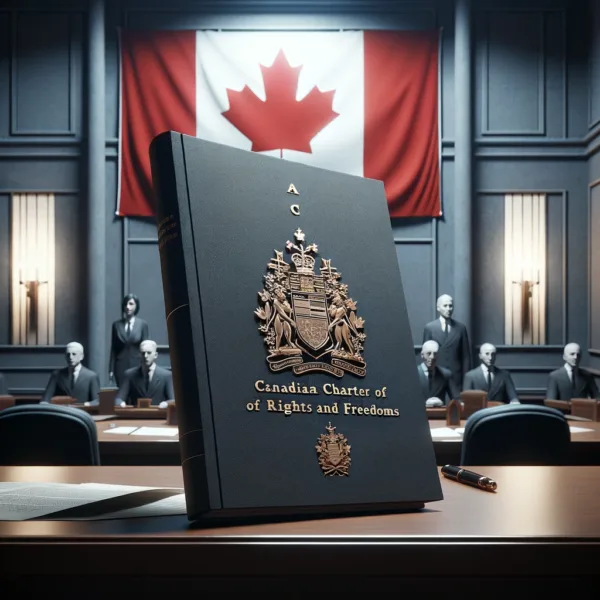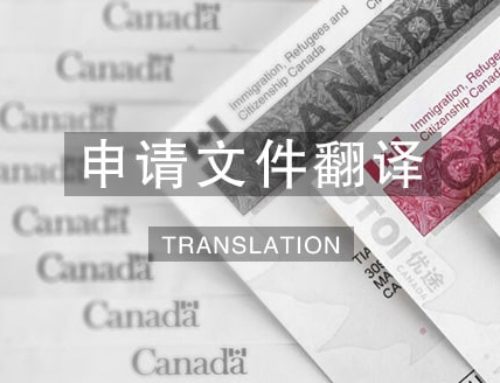加拿大公民的权利与义务 Rights And Responsibilities of Canadian Citizens
文章内容 Table of Contents
加拿大公民享有的自由 Your Freedoms as a Canadian
加拿大法律来源广泛,包括联邦议会和省级立法机构通过的法律、英国普通法、法国民法典以及许多来自大不列颠的法律。近800年前的1215年,在英格兰签署的《大宪章》(又称《自由大宪章》)包含以下内容:
- 良心和宗教自由:你可以自由选择信仰。
- 思想、信仰、意见和表达自由,包括言论自由和新闻自由:你可以有自己的想法,可以表达任何你想表达的言论并发表任何你想发表的内容。
- 和平集会自由:你可以为任何理由集会。
- 结社自由:你可以与任何你喜欢的人见面或交朋友。
Canadian law comes from different sources such as laws passed by Parliament and provincial legislatures, English common law, the civil code of France, and many things from Great Britain. Almost 800 years ago, Magna Carta (the Great Charter of Freedoms) was signed in 1215 in England and it includes:
- Freedom of conscience and religion: you can believe in whatever you want.
- Freedom of thought, belief, opinion and expression, including freedom of speech and of the press: you can have your own ideas, you can say anything you want and publish whatever you like.
- Freedom of peaceful assembly: you can gather for meetings for any reason.
- Freedom of association: you can meet or make friends with anyone you like.
加拿大公民享有的权利 Your Rights as a Canadian
人身保护权是对国家非法拘禁行为进行挑战的权利,这意味着如果你被警察逮捕但没有做任何违法的事情,你可以对警察提出挑战。这一权利来源于英国普通法。1982年,加拿大宪法在伊丽莎白二世女王的批准下进行了修订,确立了《加拿大权利与自由宪章》。
《加拿大权利与自由宪章》以以下文字开篇:“鉴于加拿大建立在承认上帝至高无上和法治原则的基础上”。宪章指出,宗教传统对加拿大人非常重要,同时个人的尊严和价值也同样重要。加拿大公民享有以下权利:
- 迁徙权:加拿大公民可以在任何地方居住和工作,随时离开和返回国家,并申请护照。
- 原住民权利:这些人是最早在加拿大居住的人。宪章不会改变与这些人的任何协议。
- 官方语言权利和少数语言教育权利:英语和法语在议会和政府中享有同等地位。
- 多元文化主义:加拿大是一个多元文化的国家。加拿大人尊重其他信仰并和平共处。
Habeas corpus is the right to challenge unlawful detention by the state which means that if you are arrested by the police and you haven’t done anything illegal, you can challenge the police. It has come from English common law. The Constitution of Canada was amended in 1982 by Queen Elizabeth Il to establish the Canadian Charter of Rights and Freedoms.
>Canadian Charter of Rights and Freedoms begins with the words “Whereas Canada is founded upon principles that recognize the supremacy of God and the rule of law.” The Charter points out that religious traditions are really important for Canadians, and the dignity and worth of the human person are also important. Canadian citizens have the following rights:
- Mobility Rights: Canadian citizens can live and work wherever they want, leave and come back to the country at any time, and apply for a passport.
- Aboriginal Peoples’ Rights: These people are those who have been in Canada before anybody else. The Charter will not change any agreements with these people.
- Official Language Rights and Minority Language Educational Rights: English and French are used equally both in Parliament and the government.
- Multiculturalism: Canada is a multicultural country. Canadians respect other beliefs and live in peace.
男女平等的权利 Equality of Men and Women
在加拿大法律面前,男女平等。如有下列行为,在加拿大均属违法:
- 任何人都不可以殴打自己的丈夫或妻子。
- 在一些国家可能存在的“荣誉谋杀”在加拿大是禁止的。
- 父母不允许为女儿实施割礼(割伤女性生殖器切割),父母不能殴打孩子。
- 任何人都不能强迫他人结婚(强迫婚姻)。
- 任何人都不应该因为其性别而遭受暴力对待(虐待)。
Men and women are equal in Canada under the law.
- Nobody can hit his/her own husbands or wives.
- “Honour Killings” which might exist in some countries, is not allowed in Canada.
- Parents are not allowed to cut their daughter’s private parts (female genital mutilation), they cannot hit their children.
- No one can force anybody to marry someone else (forced marriage).
- Nobody should be treated violently because they are men or women (abuse).
All of these cases are crimes in Canada.
加拿大公民的责任与义务 Your Responsibilities as a Canadian
在加拿大,享受作为公民权利的同时需要尽以下责任与义务:
- 遵守法律:每个人都必须遵守法律,无论他们的职位如何。没有任何人或团体可以凌驾于法律之上。
- 对自己和家庭负责:找到一份工作,照顾好自己的家庭,并努力为加拿大的进步做出贡献是非常重要的。
- 担任陪审员:当一个人出庭时,陪审团是一组帮助法官决定被审判者是否有罪的人员。如果你收到一封要求你担任陪审员的信,你必须回复并履行陪审员的职责。
- 在选举中投票:投票权伴随着在三种选举中投票的责任;联邦选举(全国范围内),省或地区选举,以及地方选举(市或镇)。
- 在社区中帮助他人:加拿大人经常无偿地(志愿)帮助有需要的人。通过这种方式,他们学习到有用的技能,并结交新朋友和建立新联系。
- 保护和享受我们的遗产和环境:加拿大的每个人都需要帮助避免浪费和污染。你应该保护自然和文化遗产,为下一代着想。
In Canada, rights come with responsibilities. These include:
- Obeying the law; everyone has to obev the law regardless of their position. No person or group is above the law.
- Taking responsibility for oneself and one’s family; it is important to find a job, take good care of one’s family, and try hard to help Canada
- Serving on a jury; When a person is in court, a jury is a group of people who help the judge to
make decisions about whether the person who is on trial is quilty or not guilty. If you get a letter asking you to serve on a jury, you must answer the letter, and serve on the jury. - Voting in elections; The right to vote comes with a responsibility to vote in all three kinds of elections; federal (for the whole country), provincial or territorial, and local (for a municipality or city)
- Helping others in the community; Canadians often spend their time without pay (volunteer) to help people in need. This way they learn
useful skills, and make new friends and contacts. - Protecting and enjoying our heritage and environment; everybody in Canada needs to help in avoiding waste and pollution. You should protect nature and culture for the next generations.
服役 Serving in Military Service
在加拿大没有强制兵役。然而,在加拿大正规部队(海军、陆军和空军)服役是一种为加拿大做出贡献的崇高方式。公民也可以在海岸警卫队或社区的紧急服务部门(如警察局或消防部门)服役。
There is no mandatory military service in Canada. However, serving in the regular Canadian forces (navy, army, and air force) is a noble way to contribute to Canada. You may also serve in the Coast Guard or emergency services in your community such as a police force or fire department.
相关链接 Related Links
- 加拿大入籍资格计算器 Canadian Citizenship Eligibility Calculator
- 加拿大入籍宣誓仪式 Canadian Citizenship Ceremony
- 加拿大公民的权利与义务 Rights And Responsibilities of Canadian Citizens
- 申请加拿大公民身份证明 Apply for Proof of Canadian Citizenship
- 加拿大护照 The Benefits of a Canadian Passport
- 双国籍 Dual Citizenship
- 加拿大入籍申请流程 Applying for Canadian Citizenship
- 加拿大入籍申请条件 Canadian Citizenship Eligibility
- 加拿大入籍申请的1095天要求 The 1,095-Day Rule for Canadian Citizenship
- 申请入籍成为加拿大公民 Apply for Canadian Citizenship





